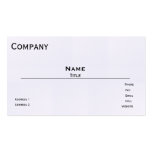Suggestions
- Define each party to the contract. You need to include the correct legal names of the parties. If you are dealing with two corporations, identify each business by its legally defined name as it appears in the corporate charter.
- Establish the contract's consideration. You must determine what each party in the contract is expected to gain from the agreement. For instance, you might enter into a contract with a customer to ship 100 of your instructional DVDs in exchange for $500.
- Describe the rights and obligations of each party under the contract. This will require you to clearly define what each party promises to do under the contract.
- Establish the manner in which payment will be made under the contract. Include the amount of the payment or installment payments, the date by which such payment or payments must be made, and the acceptable form of payment, whether it be in cash, cashier check or on credit.
- Describe the circumstances by which one or the other party can terminate the contract. For instance, if one party fails to fulfill their contractual obligation the other party should be able to terminate the contract without breaching the contract.
- Establish a means by which the parties can settle any disputes that may arise. For instance, you might require that certain disputes be settled by mediation or arbitration.
- Establish which state's law apply for the purpose of enforcing the contract. For instance, if you reside in New York and the other party to the contract resides in New Jersey, you might both agree to require that New York law will cover the terms of the contract.
Tip
- Consult with an attorney before entering into any business contract you have drafted.
______________________




 Eggshell (Textured) Business Card
Eggshell (Textured) Business Card



No comments:
Post a Comment